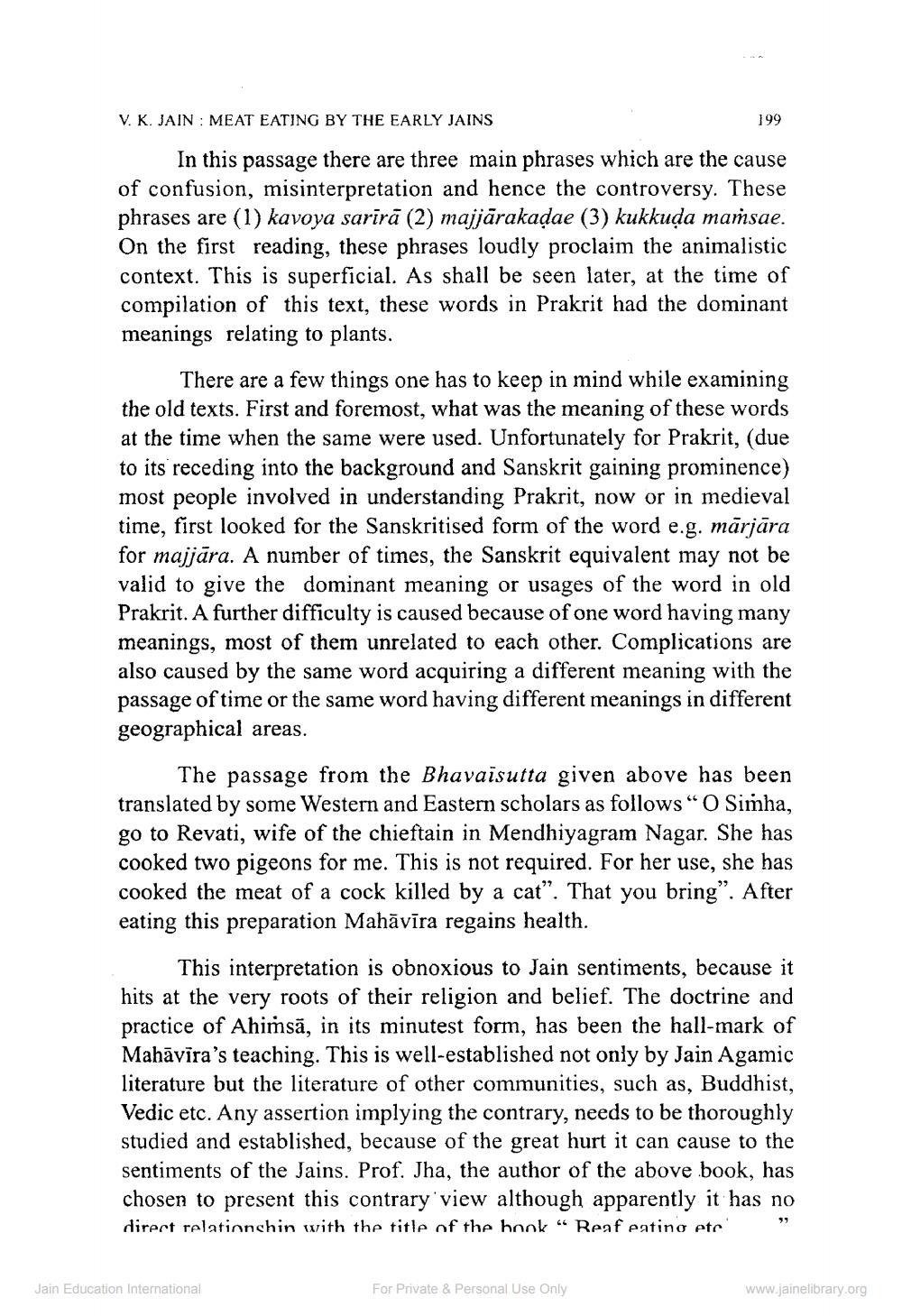________________
V. K. JAIN MEAT EATING BY THE EARLY JAINS
In this passage there are three main phrases which are the cause of confusion, misinterpretation and hence the controversy. These phrases are (1) kavoya sarīrā (2) majjārakaḍae (3) kukkuḍa maṁsae. On the first reading, these phrases loudly proclaim the animalistic context. This is superficial. As shall be seen later, at the time of compilation of this text, these words in Prakrit had the dominant meanings relating to plants.
199
There are a few things one has to keep in mind while examining the old texts. First and foremost, what was the meaning of these words at the time when the same were used. Unfortunately for Prakrit, (due to its receding into the background and Sanskrit gaining prominence) most people involved in understanding Prakrit, now or in medieval time, first looked for the Sanskritised form of the word e.g. mārjāra for majjāra. A number of times, the Sanskrit equivalent may not be valid to give the dominant meaning or usages of the word in old Prakrit. A further difficulty is caused because of one word having many meanings, most of them unrelated to each other. Complications are also caused by the same word acquiring a different meaning with the passage of time or the same word having different meanings in different geographical areas.
The passage from the Bhavaisutta given above has been translated by some Western and Eastern scholars as follows "O Simha, go to Revati, wife of the chieftain in Mendhiyagram Nagar. She has cooked two pigeons for me. This is not required. For her use, she has cooked the meat of a cock killed by a cat". That you bring". After eating this preparation Mahāvīra regains health.
This interpretation is obnoxious to Jain sentiments, because it hits at the very roots of their religion and belief. The doctrine and practice of Ahimsa, in its minutest form, has been the hall-mark of Mahavira's teaching. This is well-established not only by Jain Agamic literature but the literature of other communities, such as, Buddhist, Vedic etc. Any assertion implying the contrary, needs to be thoroughly studied and established, because of the great hurt it can cause to the sentiments of the Jains. Prof. Jha, the author of the above book, has chosen to present this contrary view although apparently it has no
direct relationshin with the title of the book "Reaf eating etc
Jain Education International
For Private & Personal Use Only
www.jainelibrary.org




